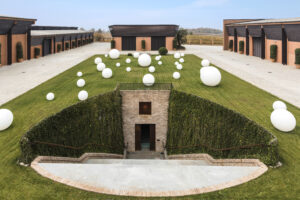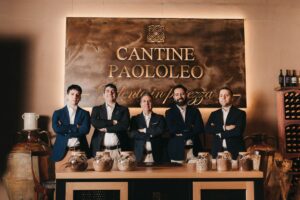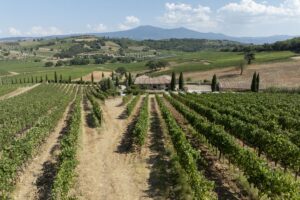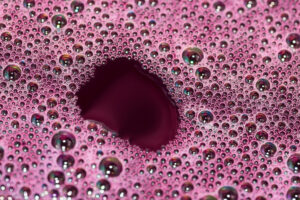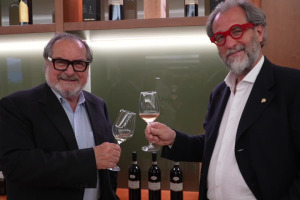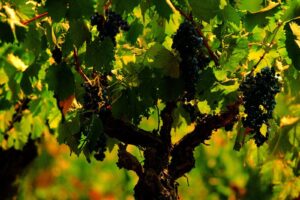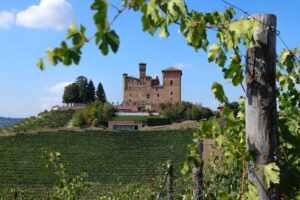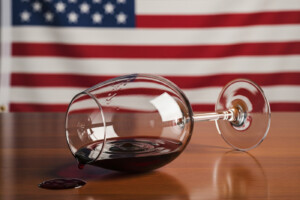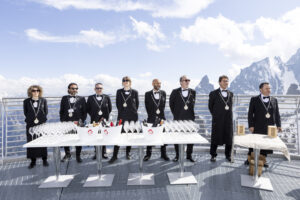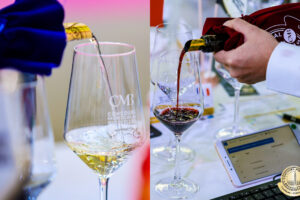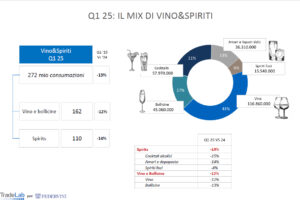The protection sector of the Prosecco DOC Consortium continues to register excellent results, which are also merit of their significant economic and intellectual commitment (over 2.2 million euros per year, ed.) to this fundamental activity. “The recent decision the European Trademark Office has announced”, explained the Consortium, “identifying yet another case of imitation of the denomination, established that, "the undisputed reputation of Prosecco DOC in the consumer’s perception has been amply documented by the Consortium, confirming that “Prosecco” has become the most famous sparkling wine in Europe, together with Champagne".
“This decision”, Stefano Zanette, president of Prosecco DOC, explained, “which by the way, involved a product other than wine, is definitely the result of our protection strategy that has always aimed at strengthening the perception of the denomination, not only among consumers but also legally. And, to do so, the Consortium has relentlessly taken legal actions aimed at the innumerable cases of imitation the world over, working tenaciously to build solid protection foundations. Our unceasing efforts have now finally produced the expected results”. The Prosecco denomination is now protected in a great number of countries, especially the most significant ones in terms of exports, the Consortium emphasized. “A few months ago, we celebrated the registration of the " Prosecco " brand in China”, Zanette continued, “while today we are toasting the Prosecco Geographical Indication, which is part of the bilateral agreement negotiated between the European Union and New Zealand” . “This further protection”, Alessandra Zuccato, Head of the Consortium's Protection activities, explained, “is especially significant, because a Country that is so far away from us has acknowledged that we are a Designation of Origin. Therefore, it has banned, five years after the agreement was signed, marketing "Australian Prosecco”, whose number one importer is New Zealand”. The Consortium has also strongly and consistently opposed recognizing the traditional term "Prošek", which Croatia has requested, to distinguish their local wine production, in respect to which the European Commission’s decision is still pending.
Furthermore, the Prosecco DOC Consortium has further strengthened controls of its online business, because of the exponential growth of fraud in this market segment. And indeed, there are
record-breaking numbers — from 2020 to date, more than 10.000 controls have been carried out and over 2.500 sales advertisements have been terminated as they have been judged to be in conflict with the legislation on the correct use of Prosecco DOC.
“The Consortium” Zanette continued, “intends to further consolidate its actions to protect the denomination, as it is aware of the absolute primary importance of this activity in the panorama of tasks entrusted to Consortiums, which qualify specifically as " protection ". The term “Prosecco” constitutes the founding heritage of our system. It is, therefore, necessary to follow strict and consistent rules and actions in order to prevent counterparts from finding weaknesses that could affect our business. The numerous attempts of incorrect use of the name — some of these have been discovered in the past — tend to become more and more insidious over the years. We know”, Zanette concluded, “that there are still many challenges we will have to face, and it will be more necessary than ever to be united in the interest of consumers and our production systems”.
Copyright © 2000/2025
Contatti: info@winenews.it
Seguici anche su Twitter: @WineNewsIt
Seguici anche su Facebook: @winenewsit
Questo articolo è tratto dall'archivio di WineNews - Tutti i diritti riservati - Copyright © 2000/2025











